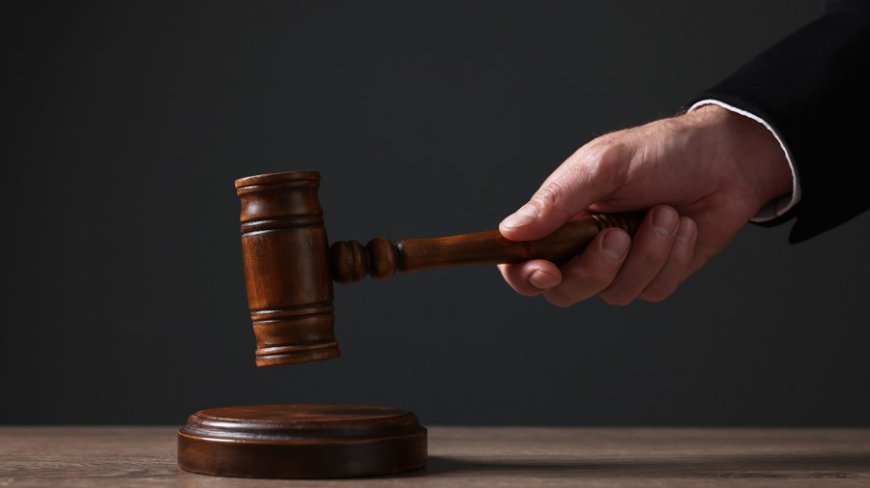How China — and even US taxpayers — are funding the left's climate lawfare campaign
Congressional hearings come and go, but some are supremely useful in terms of casting light on egregious efforts at ideological circumvention or subversion of democratic processes. One such important hearing occurred last month in the Senate Subcommittee on Federal Courts, Oversight, Agency Action, and Federal Rights, titled “Enter the Dragon — China and the Left’s Lawfare Against...

Congressional hearings come and go, but some are supremely useful in terms of casting light on egregious efforts at ideological circumvention or subversion of democratic processes.
One such important hearing occurred last month in the Senate Subcommittee on Federal Courts, Oversight, Agency Action, and Federal Rights, titled “Enter the Dragon — China and the Left’s Lawfare Against American Energy Dominance.”
In the words of the subcommittee chairman Sen. Ted Cruz (R-Texas), the problem is “a systematic campaign against American energy,” driven by a “coordinated assault by the radical left backed and paid for by the Chinese Communist Party, to seize control of our courts, to weaponize litigation against U.S. energy producers, all in order to undermine American energy dominance.”
Cruz explained that foreign money from entities tied to Chinese Communist Party fund efforts by climate advocacy groups to litigate against American energy producers. This litigation is pursued by “activist lawyers” filing lawsuits designed to bankrupt energy producers and to dismantle energy infrastructure “through sheer attrition.”
Cruz argued as well that the judiciary is being quietly captured and brainwashed as “left-wing nonprofits host closed-door training that indoctrinates judges to adopt the ideological goals of the climate lawfare machine.”
Cruz’ narrower argument about judiciary being captured has a few holes, in that the climate lawfare campaign is in a slow-motion collapse. Such litigation has been rejected in courtrooms virtually without exception — in a Bucks County, Pa. Court of Common Pleas decision, a decision by the U.S. Court of Appeals for the Second Circuit, a dismissal by New Jersey Superior Court Judge Douglas Hurd, a dismissal by Anne Arundel County Circuit Court Judge Steven Platt, a dismissal by Judge Videtta Brown of the Baltimore City Circuit Court, a dismissal by Delaware Superior Court Judge Mary M. Johnston, the dismissal of the San Francisco and Oakland case, and in a unanimous dismissal by the U.S. Supreme Court in American Electric Power vs. Connecticut.
But the nearly universal failure of the climate lawfare campaign in court is not for want of trying, and this poses problems all of its own. Consider the Climate Judiciary Project of the Environmental Law Institute. No objective reading of its legal theories and propositions could fail to conclude that their efforts represent a blatant ideological campaign of litigation against fossil energy producers. Their climate science arguments — presented as settled science to judges — are uniformly alarmist, ignoring the evidence on climate phenomena, the failure of the climate models to predict the temperature record, the impossibility of the assumed greenhouse gas scenario, the distinction between natural and anthropogenic influences on climate phenomena, and much more.
But in the view of the Climate Judiciary Project, it cannot hurt to keep trying — in particular given that its funding stream from various foundations is substantial. Who knows? at some point some judge might rule in its favor, and then who knows what the appellate courts might do?
Cruz’s larger argument about the perverse nature of the lawfare waged against U.S. energy producers is correct and crucial. His “sheer attrition” point is illustrated well by the longstanding leftist effort to block the construction of new pipelines and other energy infrastructure, in substantial part by suing on grounds based in the National Environmental Policy Act. NEPA, as applied by the courts, has been deeply perverse for decades, although a recent decision by the Supreme Court narrowed it somewhat.
Cruz’s warnings about the lawfare campaign against U.S. energy producers and its connections to the Chinese Communist Party remain highly relevant, as detailed in the hearing testimony by Scott Walter, president of Capital Research Center.
"America’s enemies, especially Russia and China, are pleased when we hobble our energy sector," Walter said. "They want to be in a stronger economic position, whether selling Russia’s natural gas in Europe or selling China’s “green” technology in America. This fact shouldn’t be controversial.”
Walter continued: “Many environmentalist groups funded by the multitude of left-wing billionaires have disturbing foreign ties. For example, the Rocky Mountain Institute, best known for its notorious study attacking gas stoves, now has a China program set up by its current CEO.”
“The California China Climate Institute is another troubling environmentalist group," he said. "Housed at UC Berkeley, [it] partners with the Institute of Climate Change and Sustainable Development at China’s Tsinghua University, the alma mater of Xi Jinping.”
Nor is it only the Chinese, whether directly or indirectly, that fund the energy lawfare campaign. American taxpayers are doing so as well. In earlier testimony before the House Subcommittee on Delivering on Government Efficiency, Walter had noted that the Environmental Law Institute has received awards from the Environmental Protection Agency and the Department of Homeland Security.
This public funding is utterly perverse, both directly and because taxpayer dollars ought not be used to bias the ongoing development of climate science. In the larger context, it represents an attack on our democratic institutions, as a political movement attempts to attain through litigation what it cannot achieve in Congress.
Even more fundamentally, it represents an assault on the Constitution, which is a framework to protect unpopular individuals, groups, and businesses from the whims and passions of ideological attacks. The climate litigation game thus represents a real pollution, so to speak, of our constitutional principles.
Benjamin Zycher is a senior fellow at the American Enterprise Institute.
What's Your Reaction?
























